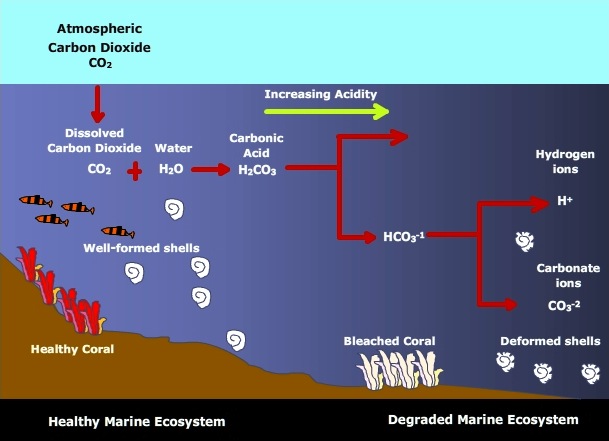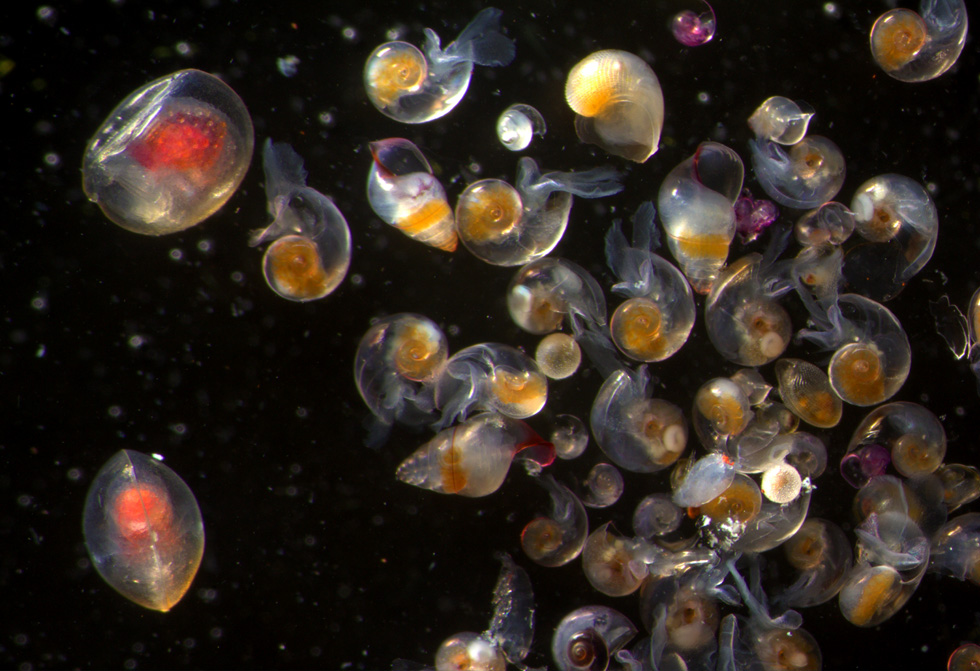Ocean acidification:
The most important sink for the excess C02 is th ocean. The problem is that as the oceans absorb more CO2 they become more acid and could evenually be come dead acid lakes.
Over the last 250 years, roughly coinciding with the Industrial Revolution, oceans have absorbed 503 billion tons of CO2, causing a 30 percent increase in ocean acidity. At current rates, ocean acidity is predicted to more than double by 2100.
acidification has been shown to significantly reduce the ability of reef-building corals to produce their skeletons.
Petropods, an importan link in the food chain, that may not be able to build shells in acid ocean:
The Carbon cycle is complex.
Indeed, the carbon cycle is a complex process that maintains a balance between the different carbon reservoirs on Earth, including the atmosphere, oceans, soil, and living organisms 1 2. However, this equilibrium can be disrupted by major events, often due to human activities. Here are some significant disruptions:
Combustion of Fossil Fuels: When humans burn fossil fuels for energy, vast amounts of carbon dioxide are released back into the atmosphere 3. This leads to a rapid accumulation of CO2 in the atmosphere, causing global warming, and ocean acidification that can disrupt marine life 1.
Land Use Changes: Changes in land use, such as deforestation and urbanization, can significantly alter the carbon cycle. These activities reduce the amount of carbon that can be absorbed by plants and soil, leading to an increase in atmospheric carbon dioxide 4.
Concrete Production: The use of limestone to make concrete releases significant quantities of carbon into the atmosphere 4.
Volcanic Eruptions: Volcanic eruptions release carbon dioxide stored in the Earth’s mantle into the atmosphere 1. These disruptions have led to an increase in atmospheric carbon dioxide levels, which are now higher than at any time in the last 3.6 million years 4. This has significant implications for global climate change and the health of our planet’s ecosystems
So the seas rise, and the temperature gets warmer by a few degrees, no big deal right?
It doesn't seem like a global rise in temperature by 2° would have that big of an impact, but here are some of the effects:
Crop yield reduction of 5 to 15%
Risk of floods from a 3 to 10% increase in annual precipitation
A decrease of some fresh water river basins of 5 to 10%
An increase in the areas burned by wildfires of 200 to 400%(source)



